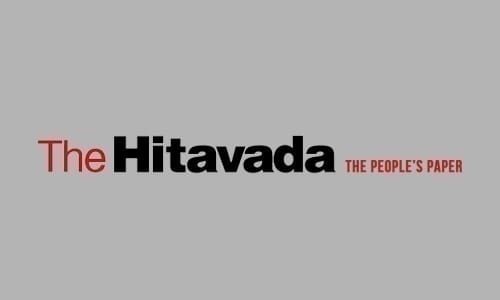Techno Turbulence
| Date :19-Mar-2024 |

By GIRISH LINGANNA
AS INDIA prepares for its upcoming general election, artificial intelligence has become a battleground for political parties. Experts caution that current regulations are falling behind rapidly advancing technologies like deepfakes. The move from conventional campaigning methods to utilizing AI for gaining votes was evident during the recent local elections in several key Indian states. According to SCMP, an AI-generated video in Telangana supposedly showing the leader of the former ruling Bharat Rashtra Samiti party, KT Rama Rao, endorsing opposition party Congress sparked a major controversy after it was watched more than half a million times on Congress’ official X account. Rao’s party ended up losing the election, leading to Congress subsequently establishing a new State Government.
Deepfakes have surfaced involving Bollywood icon Amitabh Bachchan, who hosts Kaun Banega Crorepati, the Hindi adaptation of the television game show Who Wants to Be a Millionaire. In a manipulated video, Bachchan is shown discussing a loan-waiver scheme for farmers in Madhya Pradesh with a contestant, leading to negative portrayal of then-Chief Minister Shivraj Singh Chouhan and praise for political opponent Kamal Nath.
However, this interaction is entirely fake. During the State elections, AI was utilised in various ways such as cloning the voice of Congress’ chief ministerial candidate in Rajasthan, Ashok Gehlot, to send customised WhatsApp messages addressing voters by name. Similarly, in Tamil Nadu, the ruling Dravida Munnetra Kazhagam party employed AI to digitally ‘bring back’ former Chief Minister M Karunanidhi, deceased in 2018, to speak at public gatherings.
In November last year, Indian Prime Minister Narendra Modi expressed concern about the proliferation of AI following the appearance of a deepfake video showing him engaging in a traditional dance. He described the misuse of this technology as alarming and cautioned that it could result in a serious crisis, highlighting that a large portion of India’s population may struggle to verify or authenticate manipulated media. In December, the Government released a directive to all social media platforms urging them to adhere to the Ministry of Electronics and Information Technology’s regulations regarding banned content, particularly those concerning material designed to deceive, mislead, or impersonate others.
A recent advisory from the ministry advised tech firms to seek permission before publicly launching generative AI models that are deemed ‘unreliable’ or still in the testing phase, cautioning against actions that could jeopardise the integrity of the electoral process.
Right-wing groups recently criticised Google’s Gemini chatbot for its response to a question about Modi, noting accusations that his policies have been described as fascist by some experts. The chatbot also highlighted the Government’s crackdown on dissent and use of violence against religious minorities.
Regardless of the regulations in place, numerous experts argue that it is challenging to prevent the dissemination of AI-generated content, particularly deepfakes. Considering that more than half of India’s population, which exceeds 1.4 billion people, now has internet access, as reported by the ‘South China Morning Post’ (SCMP), experts believe it is increasingly challenging to control the spread of AI-generated content, including deepfakes. One of the challenges arises from the absence of any legislation in India specifically governing deepfakes, a situation that may be insurmountable, as suggested by a technology attorney and policy analyst.
Content creators may begin utilising open-source generators that do not mandate labelling and are readily available in the market. This shift could make it impractical to regulate deepfakes in. The rapid development of rapidly advancing generative AI technology has caught many nations off-guard, prompting them to enact laws to address the risks posed by deepfakes in election contexts. Several States in the US have passed laws to address deepfakes, and a bill called the Protect Elections from Deceptive AI Act was presented to Congress in September to ban the use of misleading AI-generated content in elections. The European Parliament endorsed the Artificial Intelligence Act on Wednesday, 13th of March, which was previously negotiated with member states in December. This legislation includes transparency measures, compliance mandates, and aims to mitigate risks by prohibiting the indiscriminate extraction of facial images from surveillance videos.
The UK’s newly implemented Online Safety Act includes provisions to regulate aspects of AI, including criminalizing the sharing of non-consensual deepfakes.
The World Economic Forum’s 2024 Global Risk Report, issued in January, highlighted misinformation and disinformation as a significant global risk over the next two years, especially for countries like India preparing for elections.
Fake videos targeting politicians and parties are widespread on Indian social media. A report from Italian tech company DeepTrace Technologies in 2019 ranked India as the sixth most vulnerable country to deepfakes. Lately, there has been a significant rise in the popularity of AI-generated videos on Instagram featuring Prime Minister Modi singing popular songs in various regional languages. The deepfake content produced for political parties is predominantly outsourced to private consulting firms rather than being created internally.
The simplicity of disseminating fake news through deepfakes with just a click of a button significantly raises the danger of spreading misinformation. In November, the UK’s cybersecurity agency cautioned about the increasing risk that AI presents to elections, and the US Federal EC is exploring methods to oversee AI-generated deepfakes in political advertisements.
(IPA)